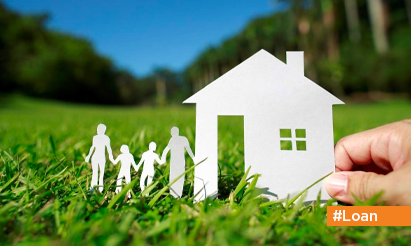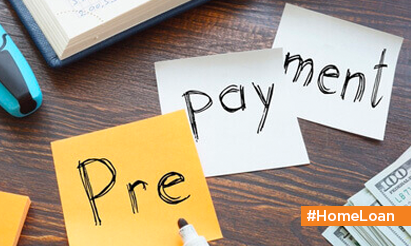Is a Home Loan Moratorium the Best Option?
We’ve all known of a ‘home loan moratorium,’ or a ‘loan moratorium,’ as the case may be.
But, how does an aggregate home loan moratorium stack up, given that this was a policy provided by the RBI to relieve consumer stress during the lockdown? Is this a perfect scenario? Let’s see what happens!
What is a home loan moratorium, and how does it work? During the coronavirus outbreak, the Reserve Bank of India (RBI) implemented a loan moratorium for several months as a comfort gesture for debtors. Despite the fact that few people needed quick relief, one out of every three debtors picked the initial moratorium, which was established in March.According to studies, the vast majority of individuals who chose the initial moratorium likewise chose the prolonged alternative. Many people who opted out of the first one is now opting for instant relief. Another intriguing pattern is that most of those persons who requested moratoriums did not want immediate financial assistance to get out of a tough circumstance. Many of them are fearful about the destiny and have chosen this strategy to save more money at this time.
Borrowers have asked for moratoriums not only on existing home loans, but also their credit cards and personal loans. Nevertheless, the most important issue raised at the beginning is that the house loan moratorium is not a payment exemption. It’s only a postponement, and your lender will charge interest on money that hasn’t been paid. As a result, experts advise that, while this reduces your immediate financial withdrawals in the case of emergency or difficult period, you should only use it if you are unable to pay your house loan EMIs.
So, exactly does it all add up?
Although deferring your home loan EMIs for a period of time would provide you with momentary comfort, the costs of the unpaid balance will continue to accumulate. Home loans have a longer repayment period, which means they are more expensive. If you miss your EMIs early in your home loan term, a bigger part of unpaid interest will be added to your loan, as interest makes up the majority of the EMIs in the first few years. According to industry professionals, merely skipping a single house mortgage payment early in the loan term will snowball into a huge financial burden in the future.
For instance, when a home loan borrower takes out a Rs. 50 lakh loan at an interest rate of 8.5 percent for a 20-year term and chooses for a 3-month moratorium, the lender will multiply the unpaid interest amount, resulting in a whopping 10-11 extra EMIs throughout the term. For a home loan which is already 10 years old, the overall impact will be less. Those that are nearing the end of their mortgages will also be unaffected.According to surveys, a large portion of those who opted the RBI moratorium (2/3rds) did so for their home loans. According to statistics, 58 percent of these loans had a remaining term of more than ten years.
So, what are your options?
It is strongly advised that you avoid any house loan moratorium as often as feasible. After all, you could be in a tight financial situation that necessitates using such a service. Professionals often advise cutting unnecessary expenses and overhauling your overall cash handling technique. Transfer your excess or leisure expenditures to EMI payments, and in desperate situations, you may even have to discontinue your SIPs or even other investments to cover your EMIs. However, you must not make any compromises regarding your health and life insurance payments if you follow their advice.Most people consider taking out personal loans to pay these expenses but doing so will put you in even more debt because personal loans have higher interest rates and it will suffocate you in the long run. Assuming none of it, experts suggest you can liquidate any excess gold stockpiles or assets that aren’t producing significant returns.
Every such home loan moratorium would often give you the option to opt-in. If you do not select this choice, your loan will be unaffected. Verify to see whether your bank isn’t automatically granting a moratorium to all borrowers who aren’t needed to opt-out. Whether you have previously taken a home loan moratorium, you could choose to cover the interest that has accrued during this timeframe as a one-time payment so when term finishes. Alternatively, you can add this to your existing home loan, which will raise your EMI. The third option is to add your interest to your ongoing house loan and lengthen the repayment period.
Lenders are most inclined to choose the third choice as their preferred option. Only f ew borrowers may wish to make a one-time payment, but it is highly suggested if at all doable, as it will save you a significant amount of money over the procedure. Others with long – term might believe the EMI increase will be minor and opt for a higher EMI. Extending the loan’s term likely result in a far more manageable EMI, but the entire interest expense will increase. When you extended the EMI or duration to handle your moratorium at first, you should continue to prepay your home loan with rewards, excess cash, advancements, and etc. It will continue to lower the tenure and total cost. This will continue to ease the burden of interest on your shoulders.
Disclaimer: The views expressed above are for informational purposes only based on industry reports and related news stories. PropertyPistol does not guarantee the accuracy, completeness, or reliability of the information and shall not be held responsible for any action taken based on the published information.




